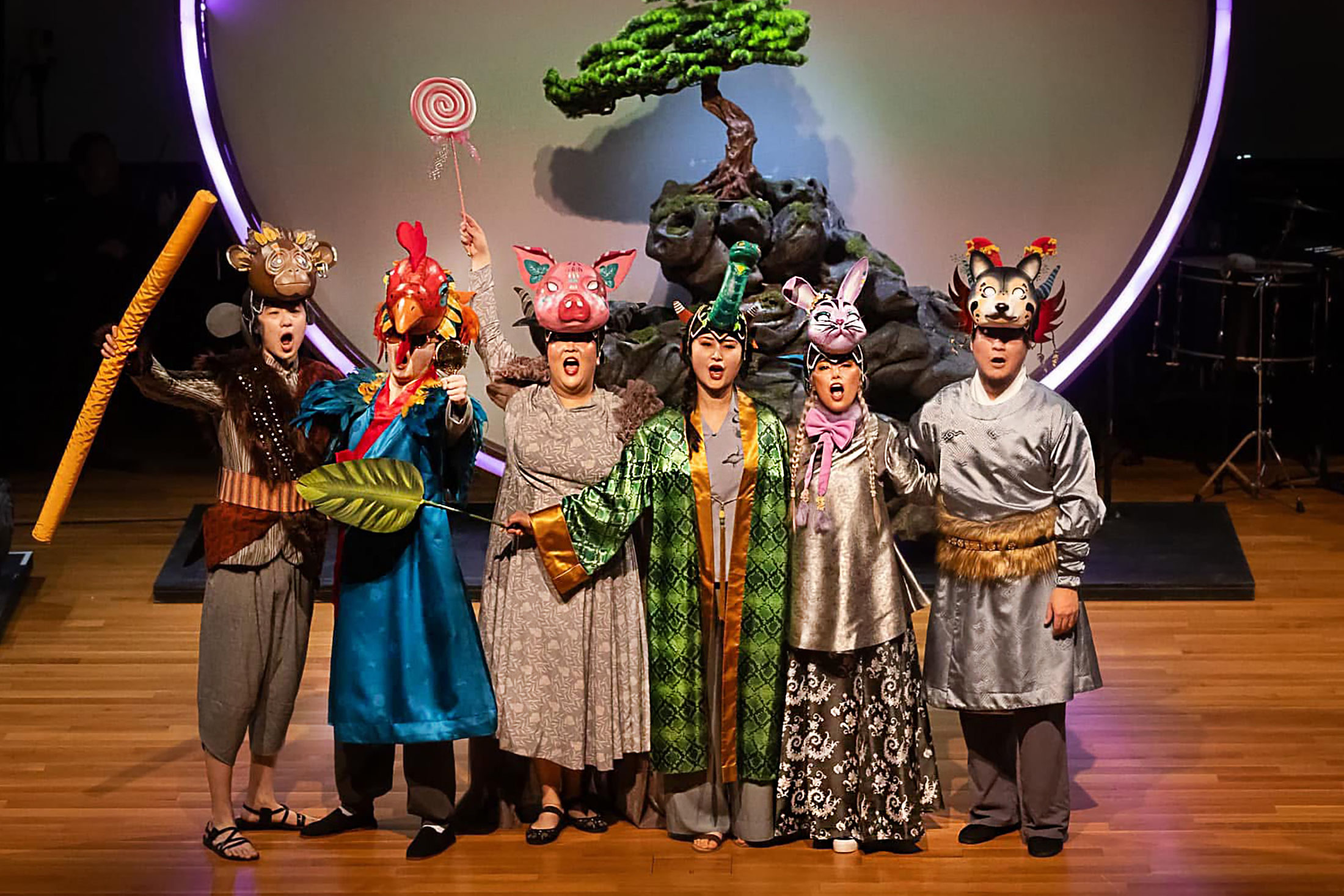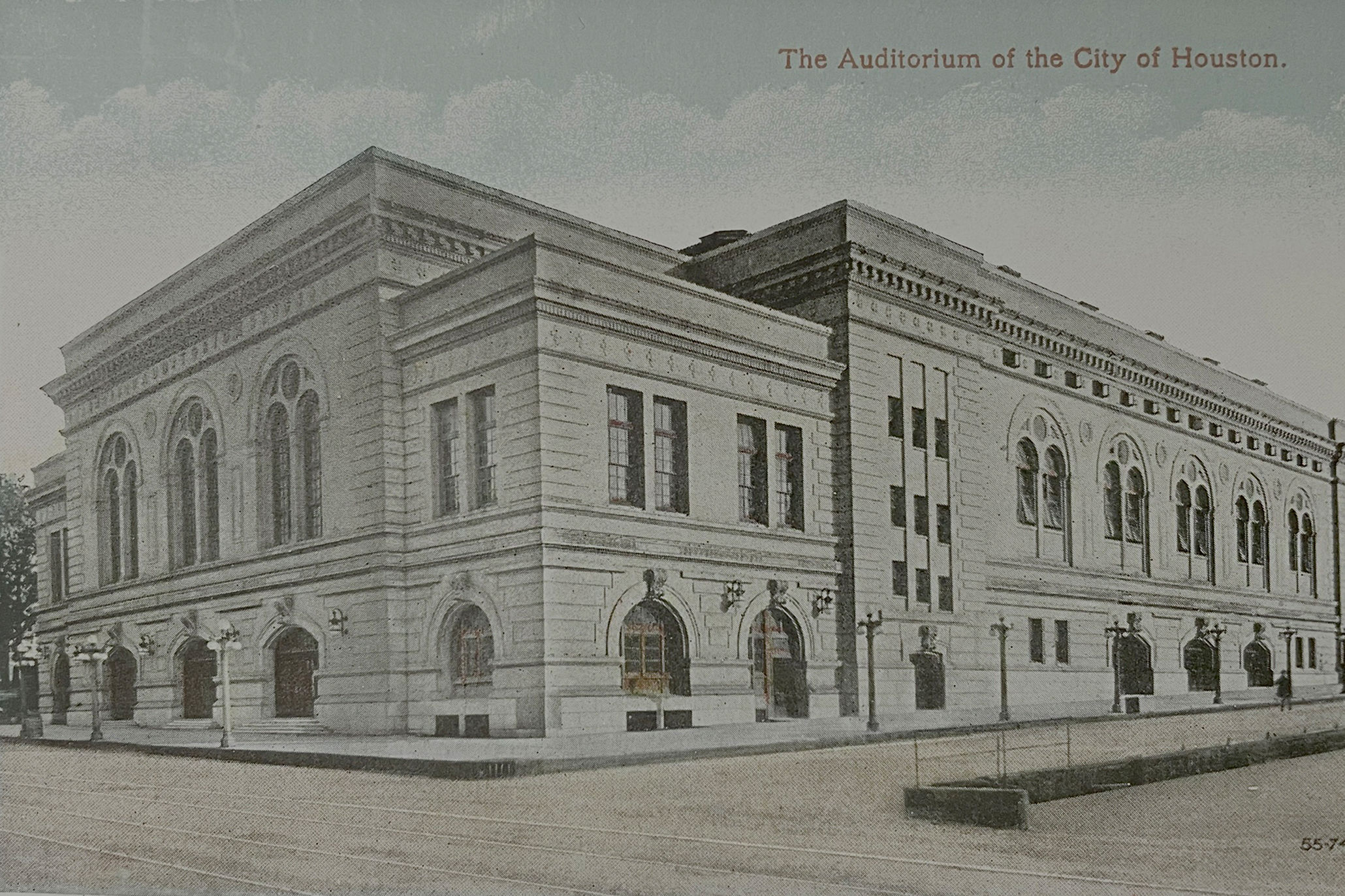Richard Bado Will Convince You Opera Is for Everyone

Houston Grand Opera's Richard Bado is one of the opera world's most respected chorus directors.
Image: Anthony Rathbun
On a starry evening in 1989, Richard Bado made his way backstage inside the Cairo Opera House. The 30-year-old had just made his professional conducting debut, leading Houston Grand Opera’s (HGO) production of Show Boat before a full house. This year marks 35 years of Bado's tenure as chorus director for HGO, but that night in Egypt, he was a young phenom, proving himself on an international stage.
Exhausted but exuberant, Bado greeted colleagues and well-wishers who had gathered to congratulate him. Then, a small group approached. “They didn’t speak a word of English, and clearly, I didn’t speak their language,” Bado says. “Somehow we communicated. Then, on our last day there, they invited me to their village, and I went.” Bado has no idea how he agreed to the excursion or, looking back, even why.
Bado’s new friends gave him traditional garb, and he changed out of his Western clothes. Then, sitting down on the banks of the Nile River, he drank tea with village elders, and documented moments with his small Instamatic camera. “The experience was just…so amazing,” Bado says. “It wasn’t what the point of the trip was. But to me, that was building bridges.”
The detour into the Egyptian countryside is part of a pattern. Bado—a virtuosic pianist and one of the opera world’s most respected conductors—endears himself to others not just because of his brilliance, but because of his inclusiveness. “The arts are for everyone,” he says. “The more we can convince our citizens that the arts are not elite—not for a select group of people—but for all people, the better it is for the entire city.”
As chorus director for HGO, Bado recruits and auditions artists who will sing in the choruses of all the operas in a season, but his main role is creative and disciplined. Since 1988, he’s been in charge of preparing the musicians for every production and is responsible for the overall musical quality of the opera.
On a hot Texas day in June, Bado explains his duties the day after returning to Houston from Paris, but as he speaks, no jet lag sluggishness surfaces—even after the drudgery of a six-hour delay. He sounds upbeat, and says the trip was productive. The majority of HGO chorus members are Houstonians with degrees in voice. Since rehearsals happen on evenings and weekends, many of them are educators by day, either in local school districts or privately. But principals for each production are recruited from all over the world, hence the trip to Paris. “We heard singers, watched conductors and performances, and looked at new productions,” Bado says.

Richard Bado has known he wanted to be a conductor since second grade.
Image: Anthony Rathbun
Bado has decades of experience bringing top talent to Houston. A native of Pittsburgh and a graduate of the Eastman School of Music and West Virginia University, he arrived in Houston as an apprentice pianist with HGO in 1984. In 2005, Rice University came to him with an irresistible offer: help build the school’s opera program as the director of opera studies, a newly created position. He stayed for 12 years, developing the curriculum, contributing to plans for the campus’s opera house, and recruiting students.
Today, Bado is preparing for HGO’s 2023–2024 season. This winter, the opera will present Richard Wagner’s Parsifal, which Bado calls “extraordinarily beautiful and complex.” In the spring of 2024, HGO will produce The Sound of Music, and Bado will serve not just as the chorus director, but as the show’s conductor. “Anyone who knows me knows I grew up with The Sound of Music,” he says, before adding with a laugh, “I have been preparing my whole life to conduct this.”
Bado can’t wait to share the shows with Houston audiences. He is quick to praise the support Houstonians give the opera, ballet, symphony, theater, and other endeavors, and speaks warmly of his adopted hometown. “The atmosphere here in the city is one of, We can do this. And if we do this, we are going to be the best at it,” he says. “We never shy away from a challenge.”
It’s a can-do posture Bado understands well. In second grade, he watched a fifth and sixth grade chorus perform a Christmas program. “I turned to my teacher and said, ‘I want to do that!’ and she said, ‘Well, you have to wait until you’re in fifth grade,’” he remembers. “I said, ‘No, not that. That.’ And I pointed to the teacher who was waving her hands while they were singing. My teacher looked at me like, ‘Who are you?’” He laughs.
He was already Richard Bado.




